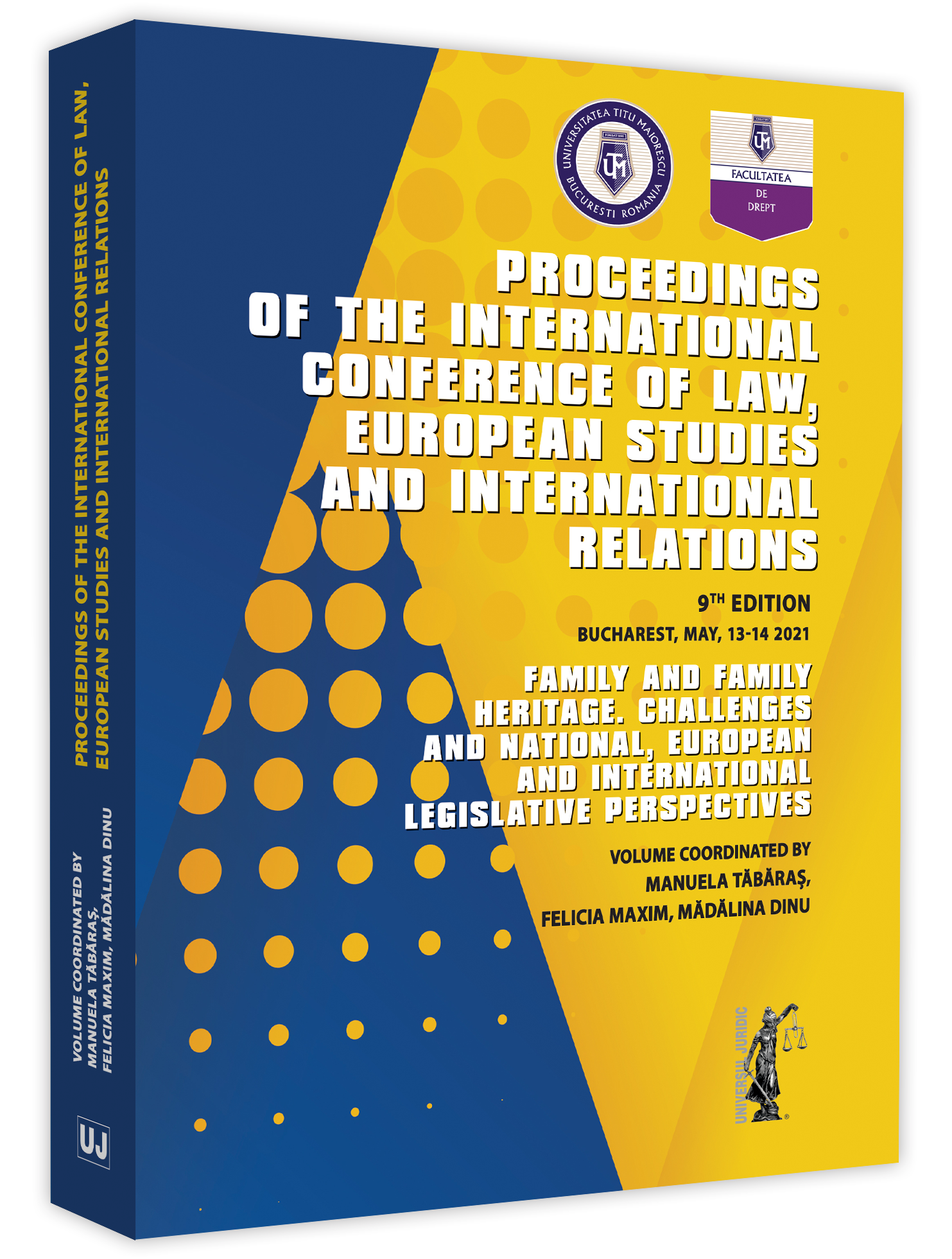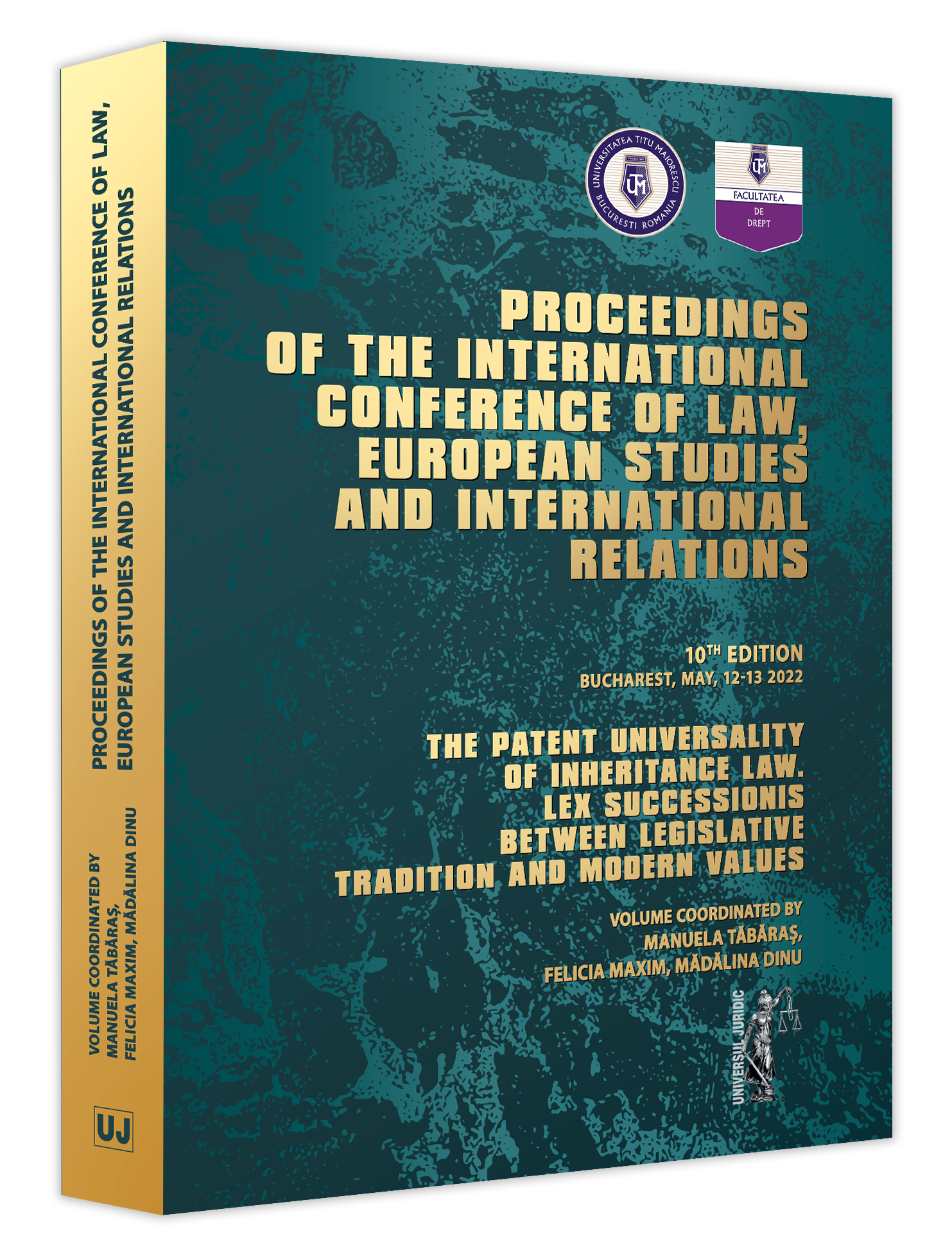THEORETICAL AND PRACTICAL CONSIDERATIONS ON THE SETTING-UP OF THE GUARANTEES OVER THE RECEIVABLES
DERIVING FROM A PROMISSORY NOTE
Author(s): Florin Constantinescu / Language(s): English
/ Issue: IX/2021
Keywords: credit title; promissory note; pledge; mortgage; natural person;
The specificity of the banking activity has always been characterized by the generating of a significant influx of goods (goods), both when the credit institution has provided financing to its customers of any type and when the credit institution has made available to the customers its payment instruments (in the form of promissory notes) to facilitate payments. Obviously, on the solid legal background created by Law no. 58/1934 on the bill of exchange and promissory note and by Law no. 59/1934 on the check, the bill of exchange trade was revitalized after December 1989, the date from which all commercial activity was rearranged on other pillars, and the National Bank of Romania (“NBR”) prudently regulated the circulation of bills of exchange, through a robust legislation such as the Framework Norm no. 6/1994 on the trade made by credit institutions with bills of exchange and promissory notes (hereinafter referred to as Norm 6), Framework Norm no. 7/1994 on the trade made by credit institutions with checks, (hereinafter referred to as Norm 7). The new Civil Code brought novelties regarding the establishment of collateral over the receivables ascertained through nominative titles, to order or to bearer, through the movable mortgage. Also, the negotiable titles (including promissory notes) issued in materialized form and, therefore, susceptible to physical appropriation, may be the subject of the pledge. In the activity of financing and bank guarantee, the promissory note is used as a credit guarantee, which is right, secondarily, being capitalized primarily, in this context, the credit title trait of the promissory note. Thus, by executing the promissory note, in case of an event of default, defined according to the credit agreement, the function of the payment instrument (specific to a promissory note) is also highlighted. Thus, this article aims mainly to make some necessary distinctions regarding the establishment of guarantees over the receivables derived from a promissory note (issued by the legal person receiving the loan or issued or endorsed, in most cases, by a person as an associate / shareholder, administrator, without limitation, of the legal person contracting the loan) and the transmission / assignment of the amounts incorporated in a promissory note, the effects of the avail on the patrimony of the natural person and the highlighting of proposals de lege ferenda.
More...


